Family Law Attorney Cover Letter Examples

May 29, 2025
|
12 min read
Master the art of crafting a compelling family law attorney cover letter: make your case with precision and heart while avoiding common legal pitfalls. Seal the deal with a letter that’s more than just a brief encounter.
Rated by 348 people
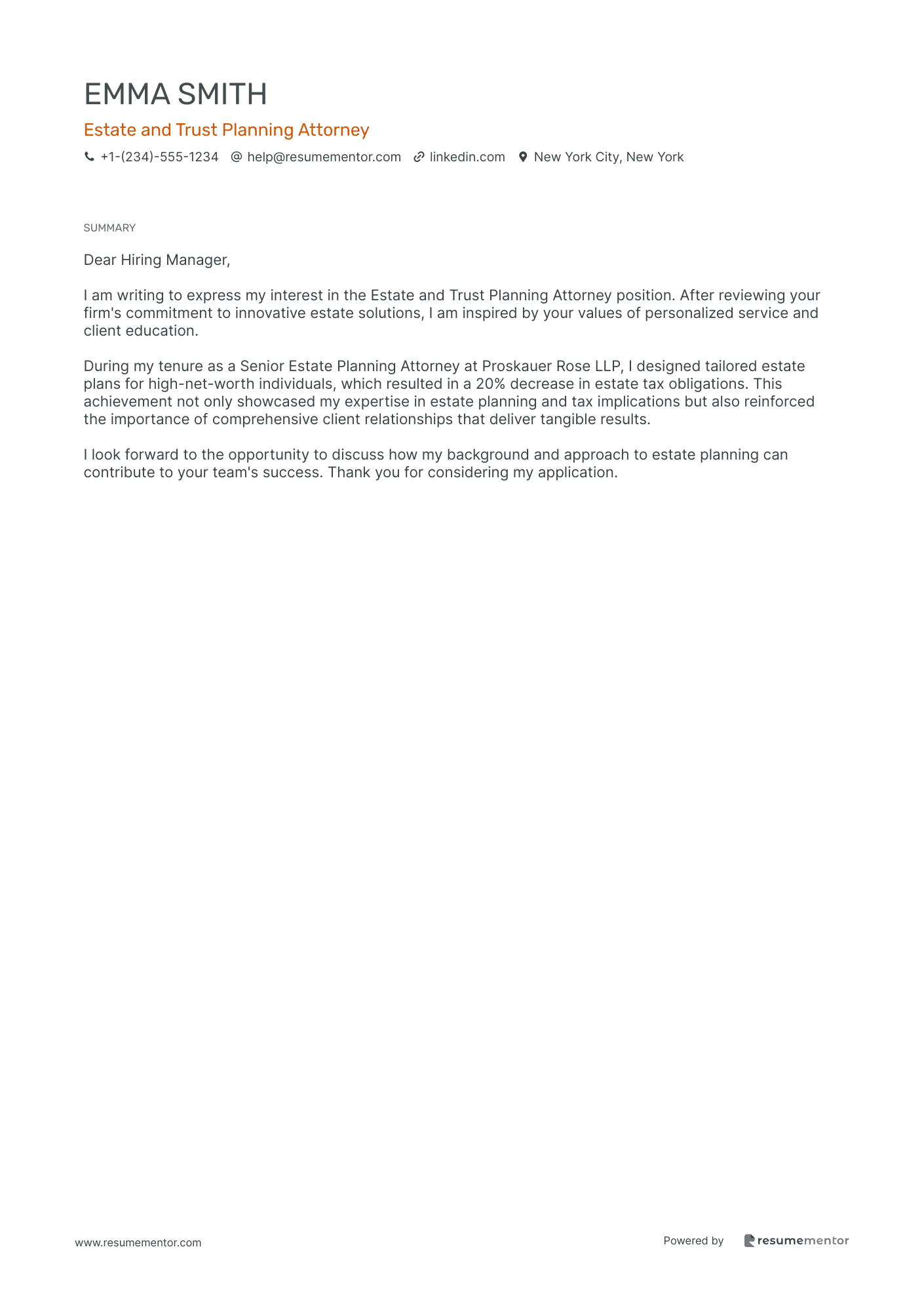
Estate and Trust Planning Attorney
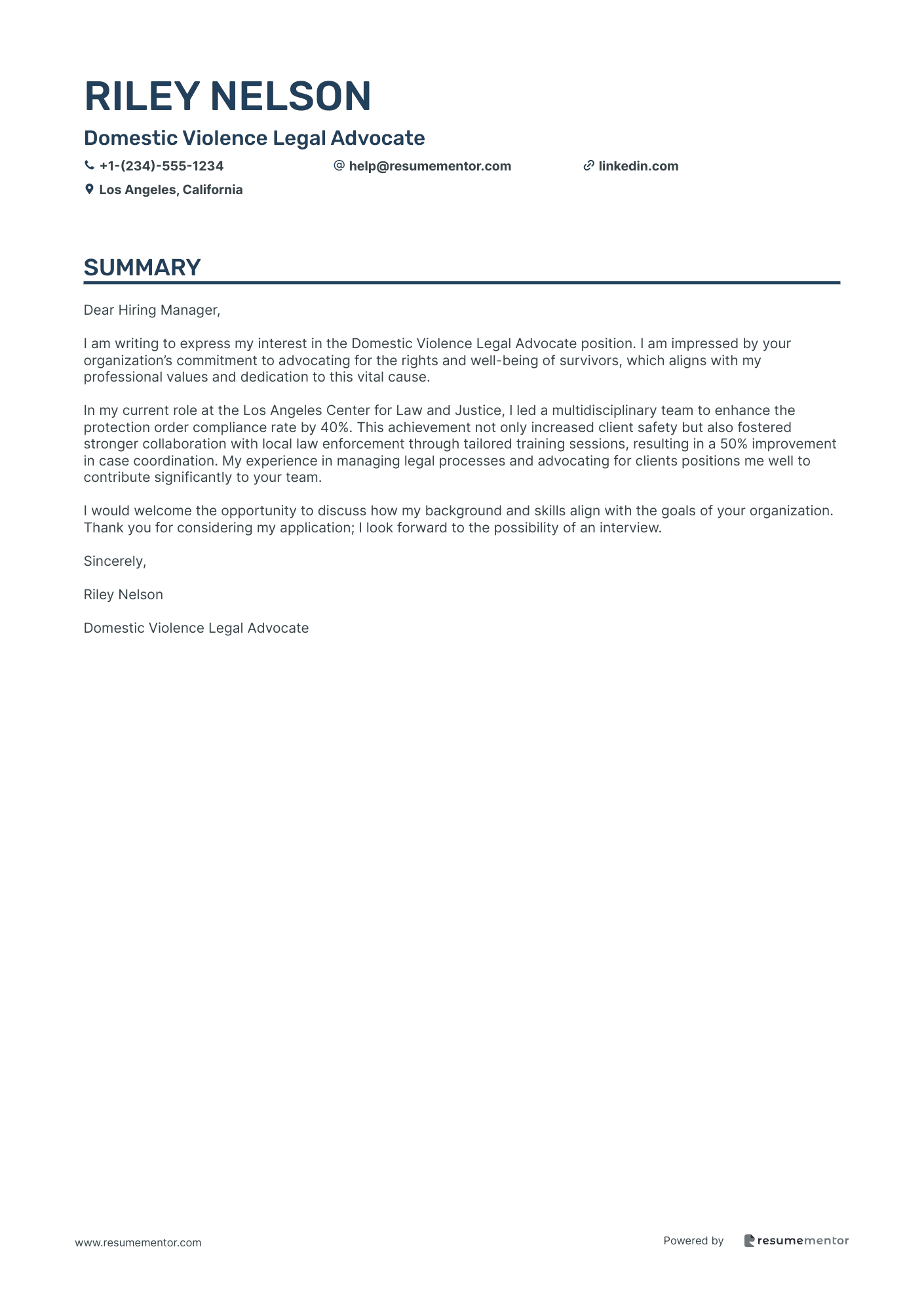
Domestic Violence Legal Advocate
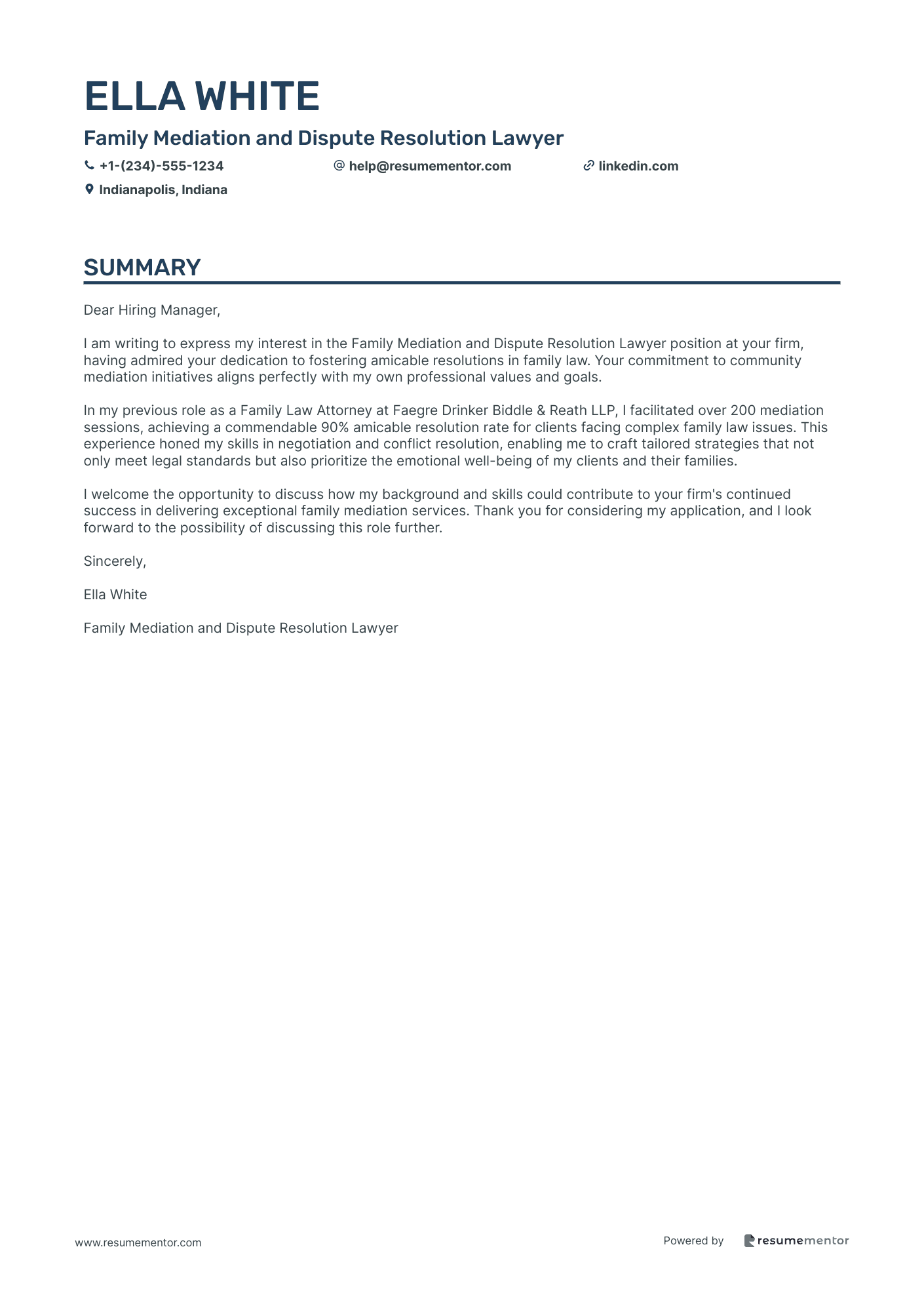
Family Mediation and Dispute Resolution Lawyer
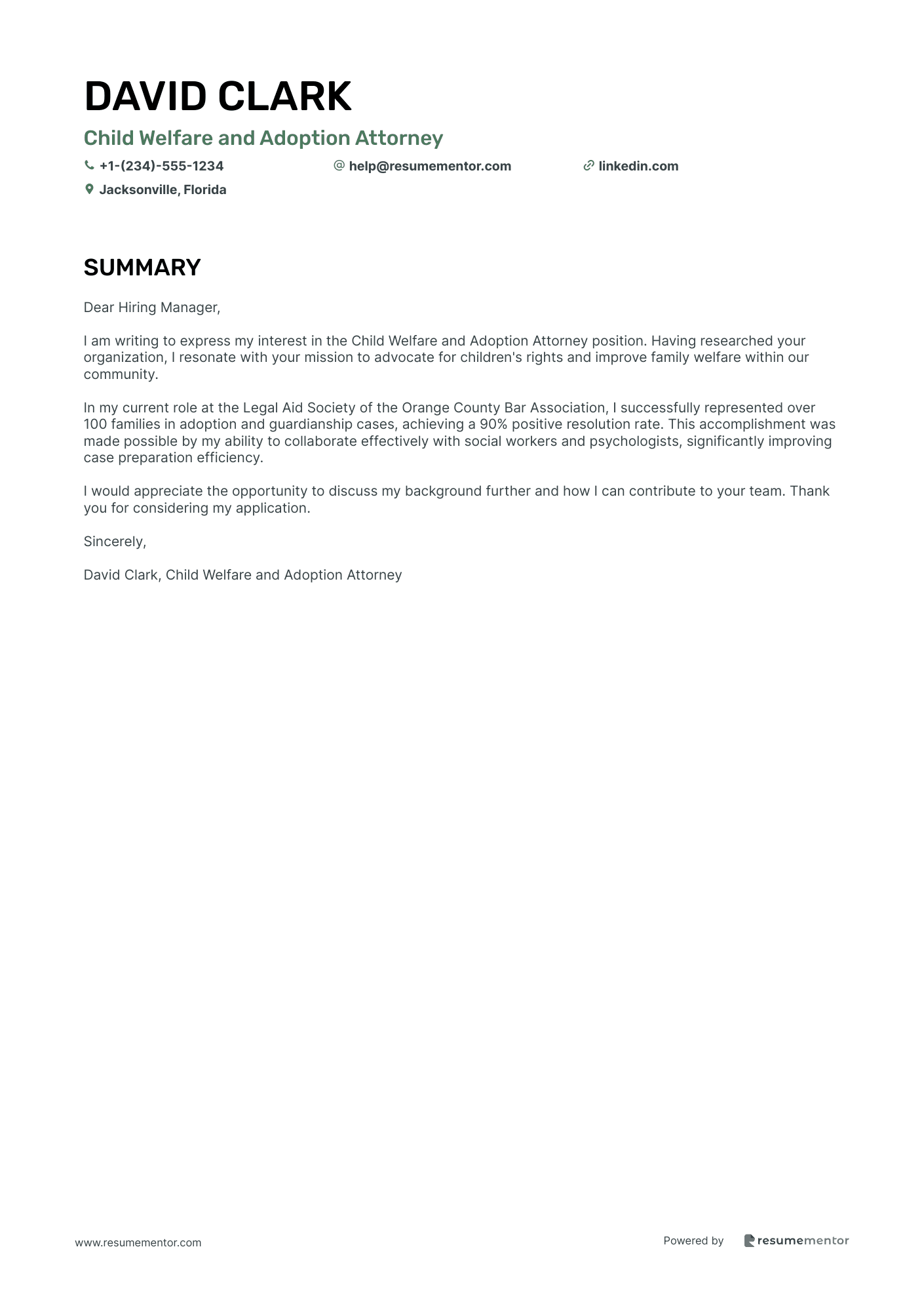
Child Welfare and Adoption Attorney
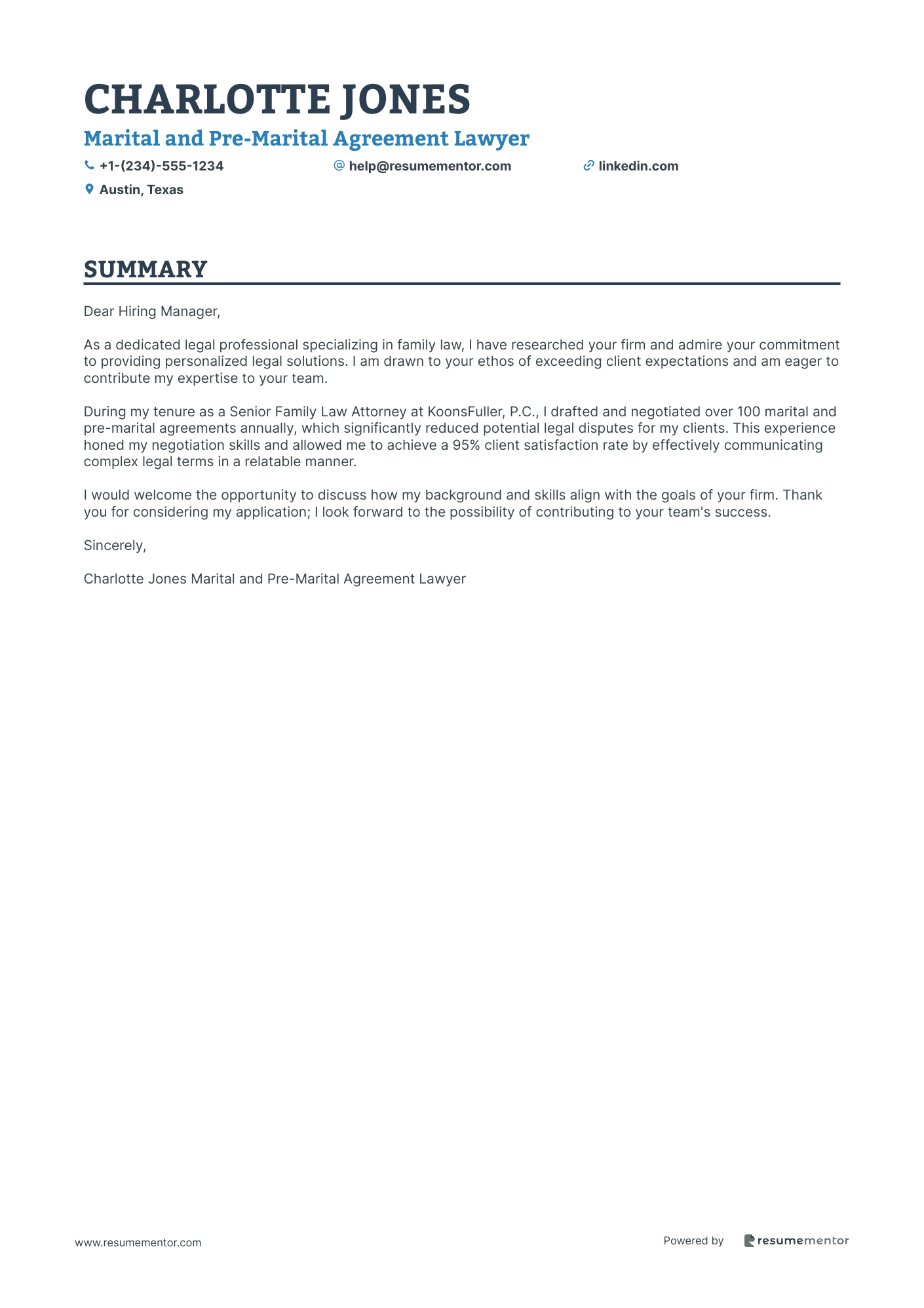
Marital and Pre-Marital Agreement Lawyer
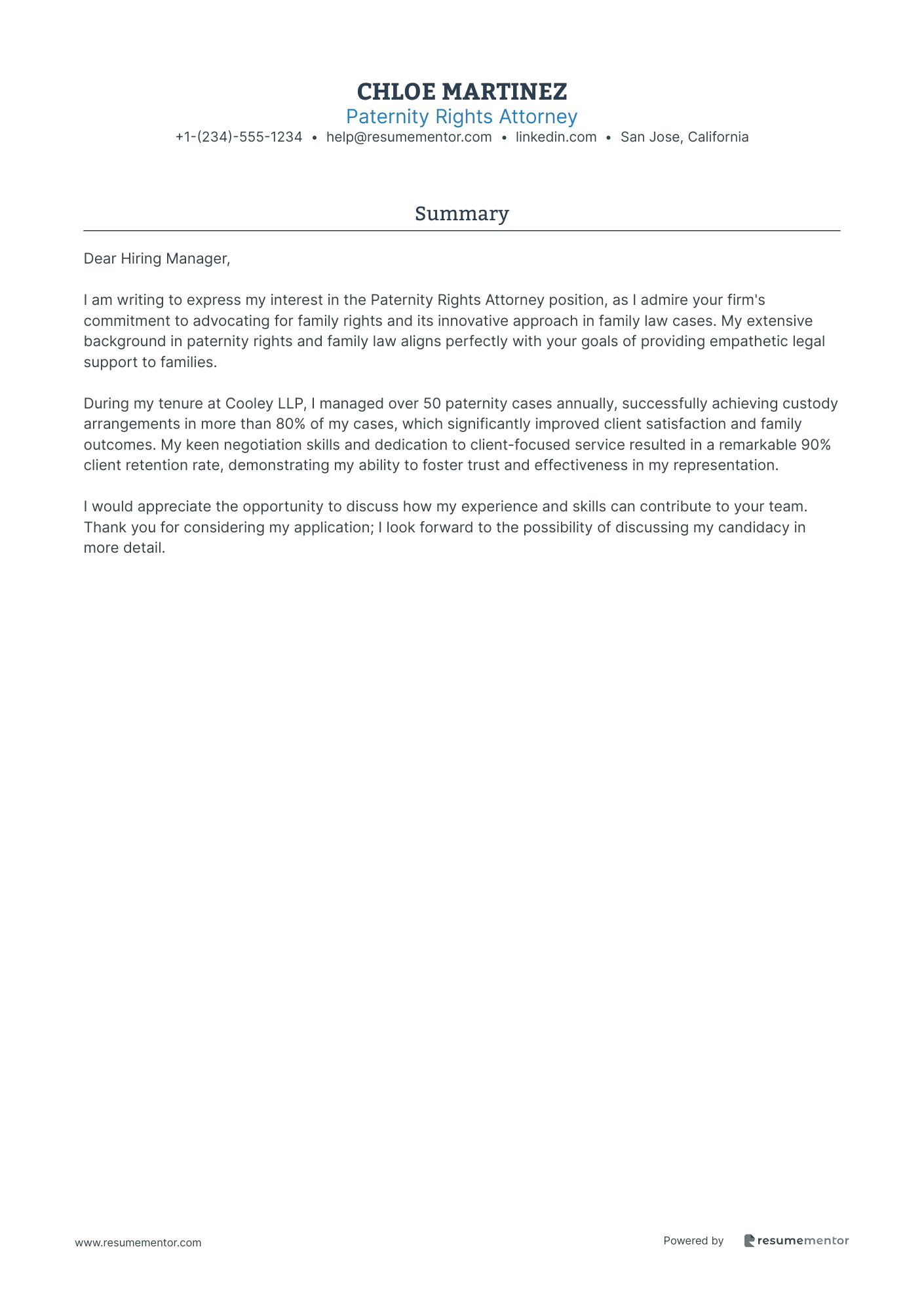
Paternity Rights Attorney
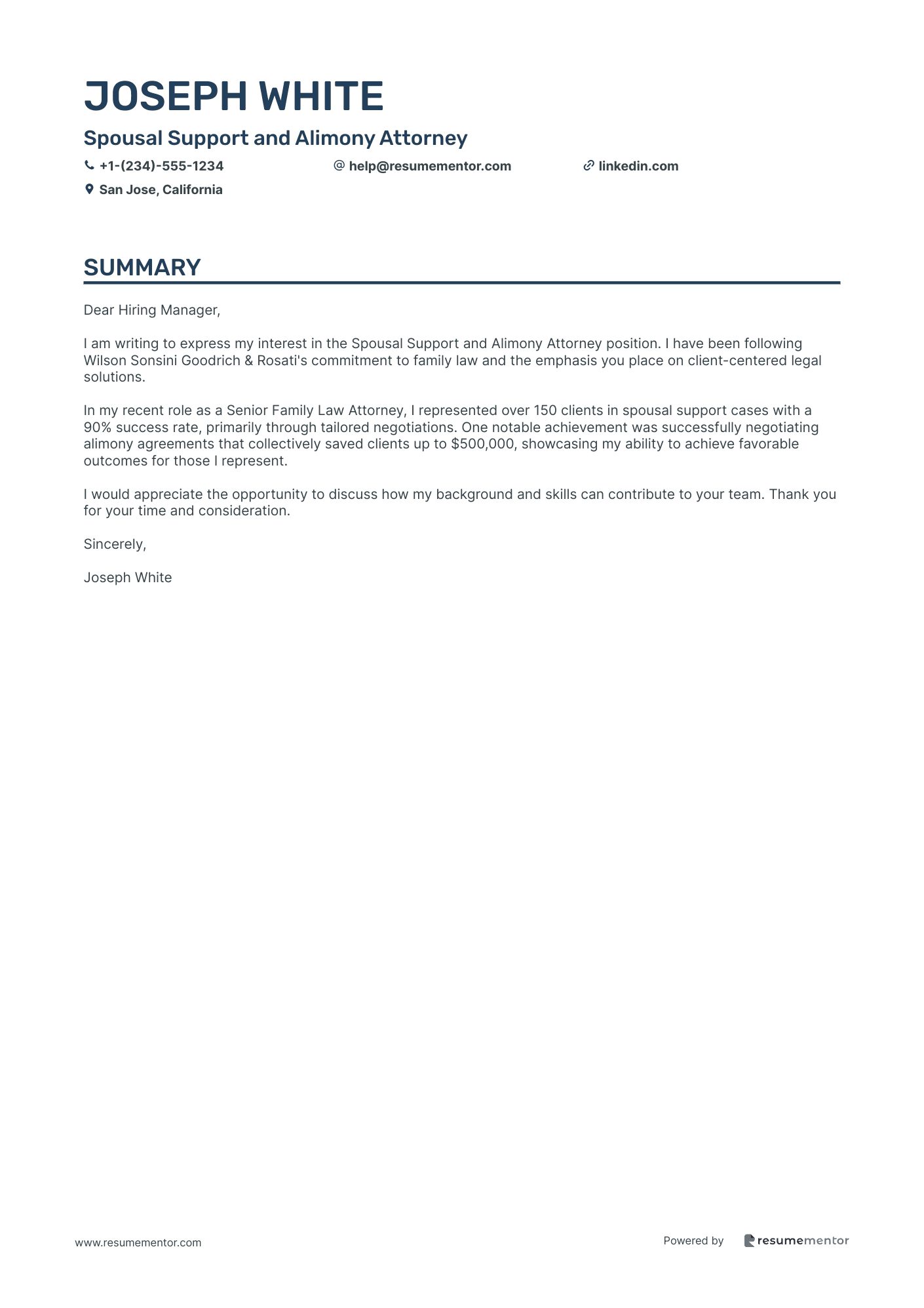
Spousal Support and Alimony Attorney
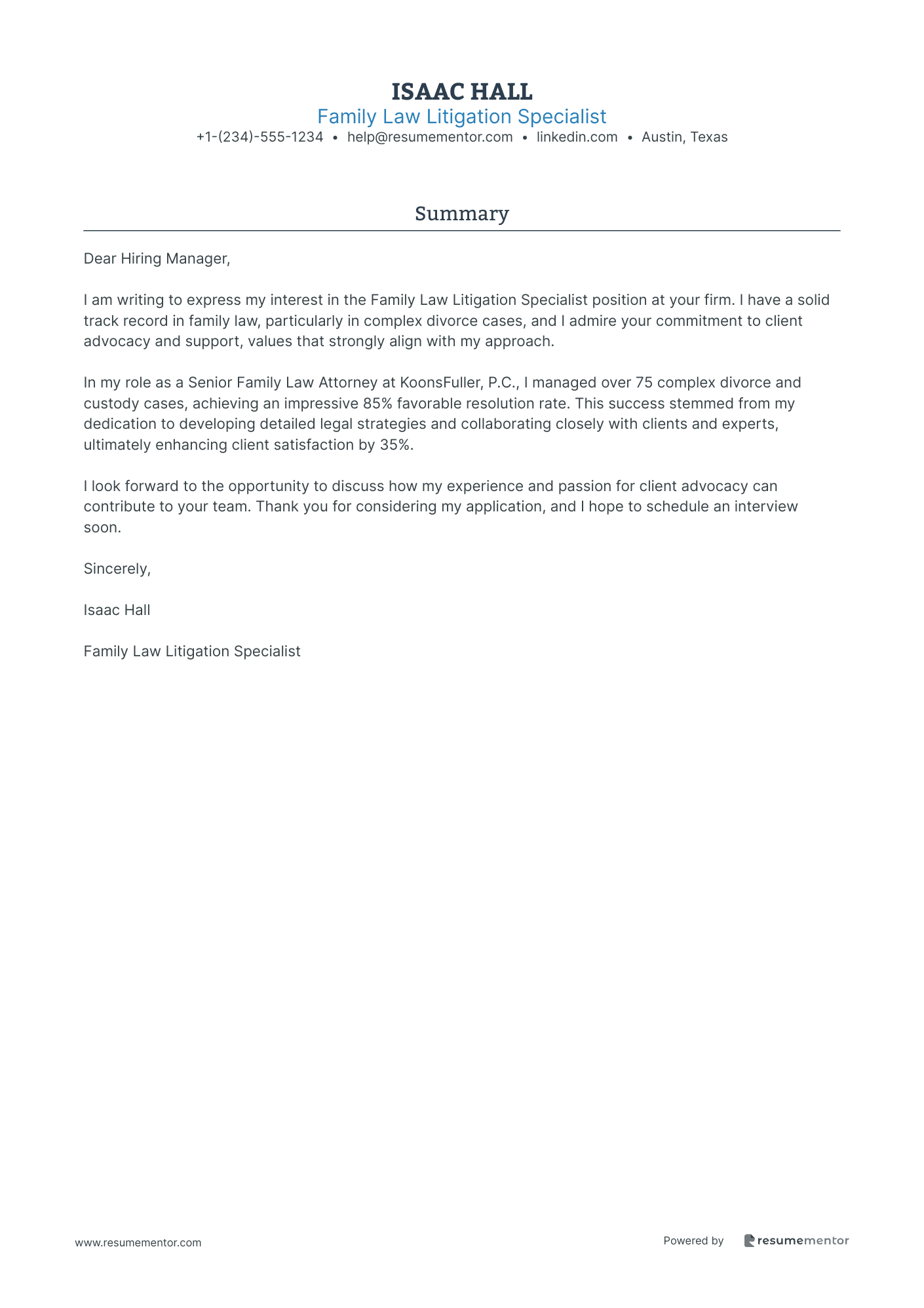
Family Law Litigation Specialist
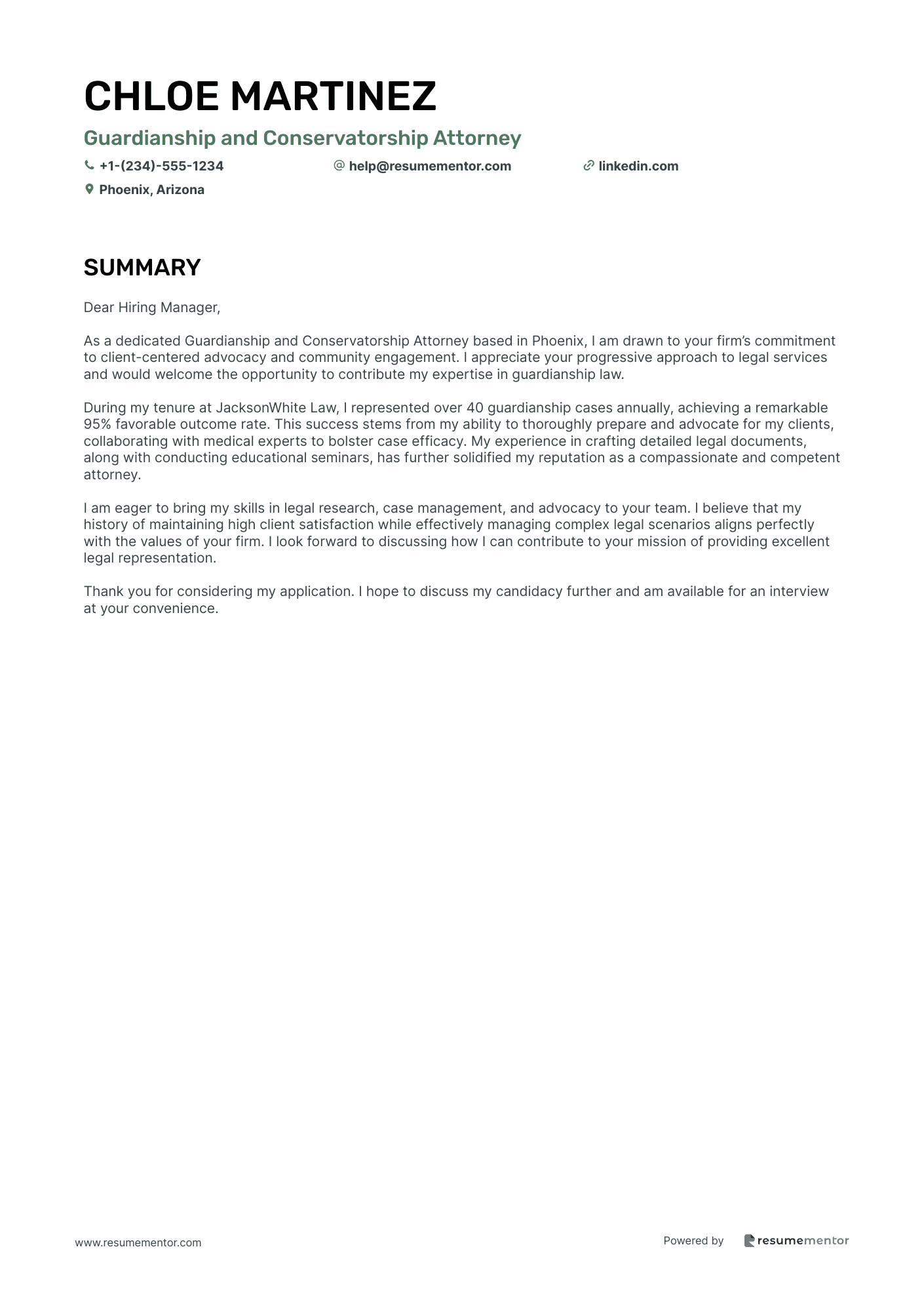
Guardianship and Conservatorship Attorney
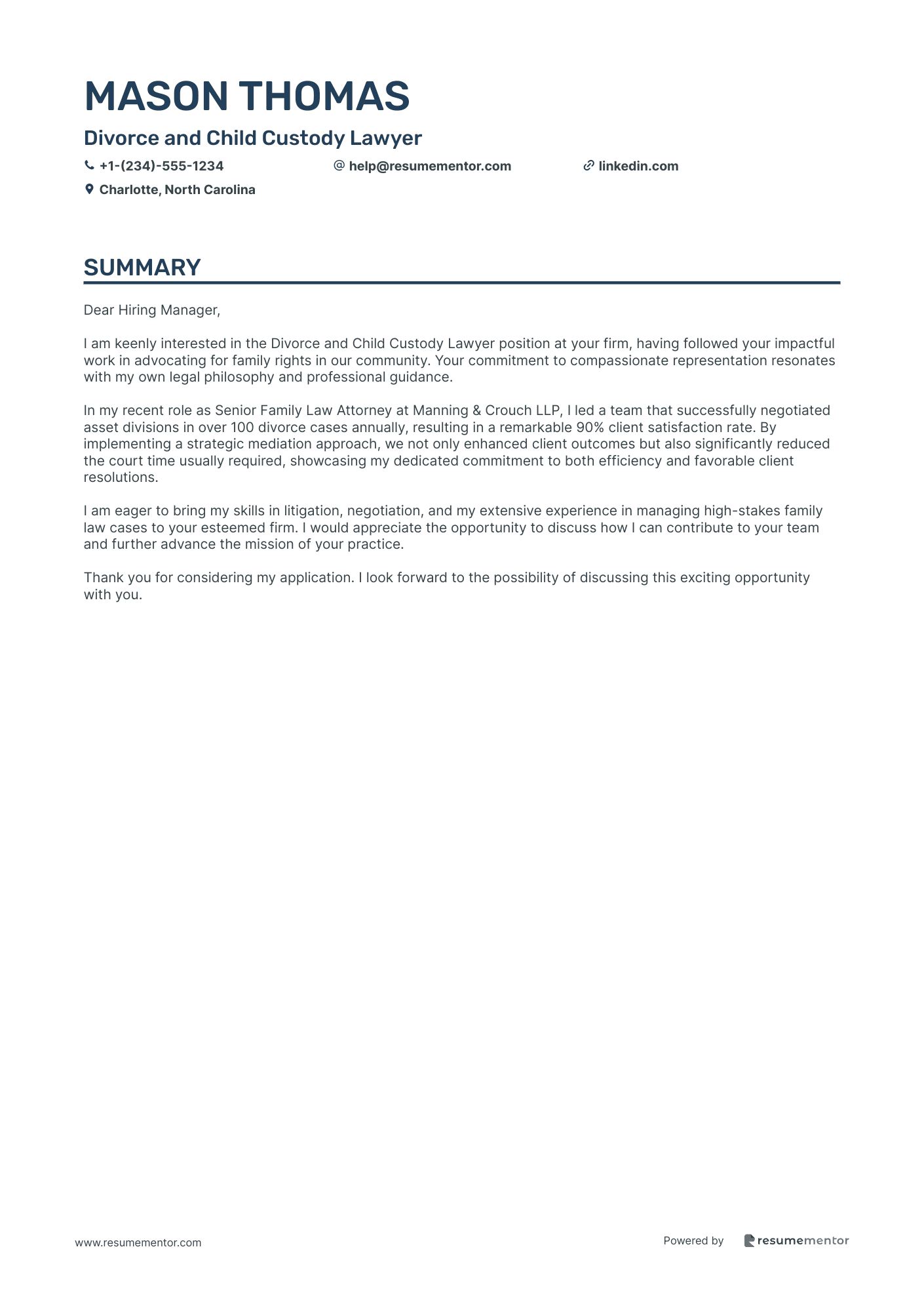
Divorce and Child Custody Lawyer

Estate and Trust Planning Attorney cover letter sample
Domestic Violence Legal Advocate cover letter sample
Family Mediation and Dispute Resolution Lawyer cover letter sample
Child Welfare and Adoption Attorney cover letter sample
Marital and Pre-Marital Agreement Lawyer cover letter sample
Paternity Rights Attorney cover letter sample
Spousal Support and Alimony Attorney cover letter sample
Family Law Litigation Specialist cover letter sample
Guardianship and Conservatorship Attorney cover letter sample
Divorce and Child Custody Lawyer cover letter sample
Related Articles

Continue Reading
Check more recommended readings to get the job of your dreams.
Resume
Resources
Tools
© 2026. All rights reserved.
Made with love by people who care.
